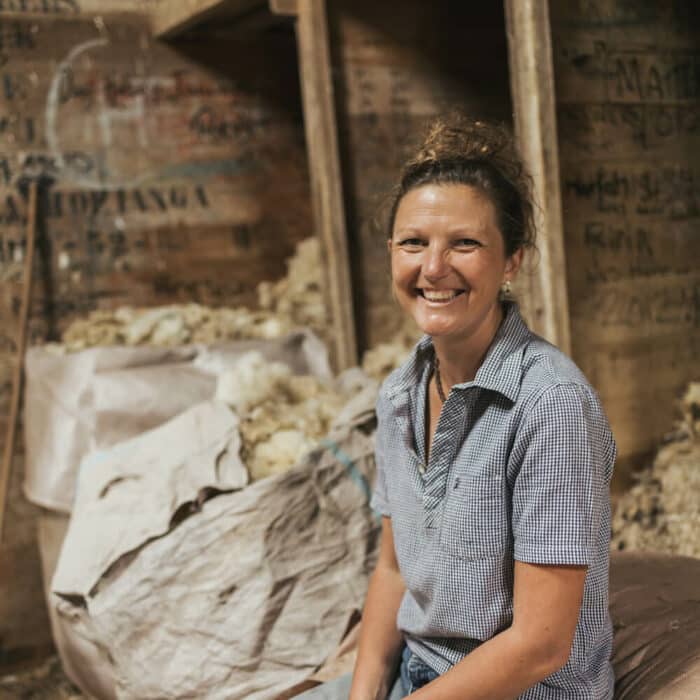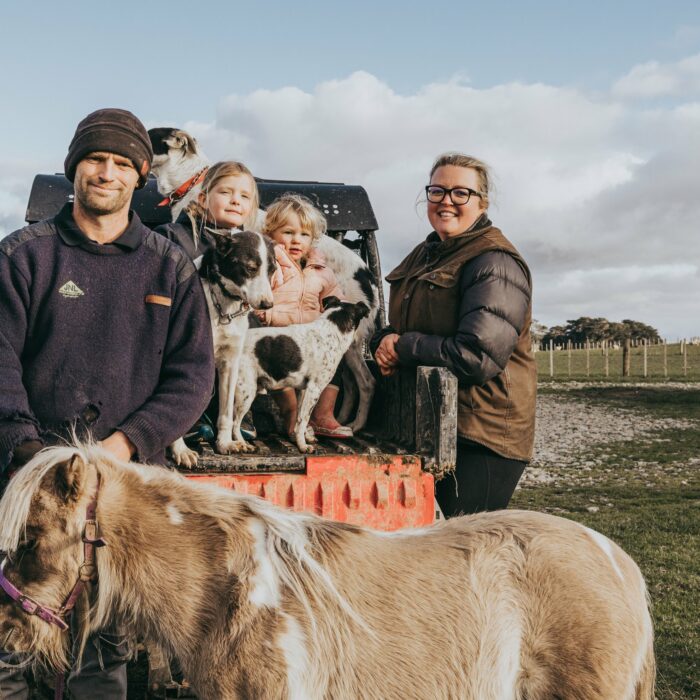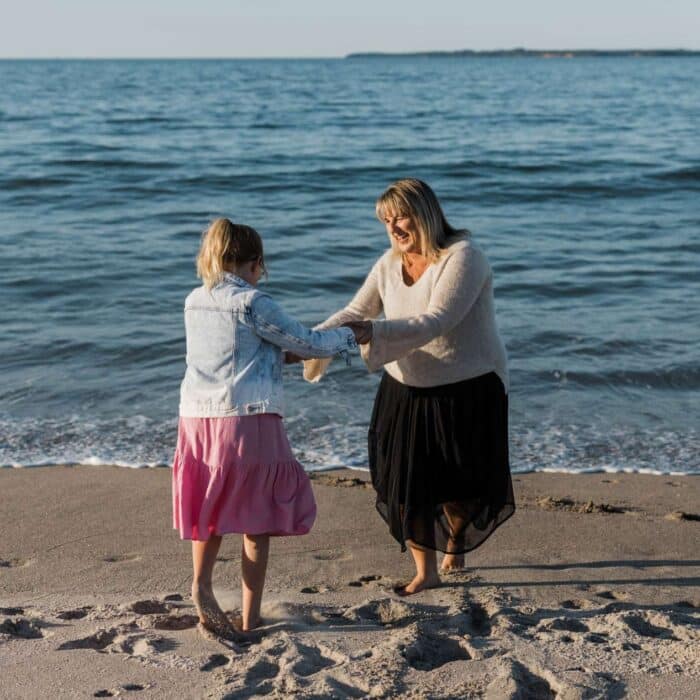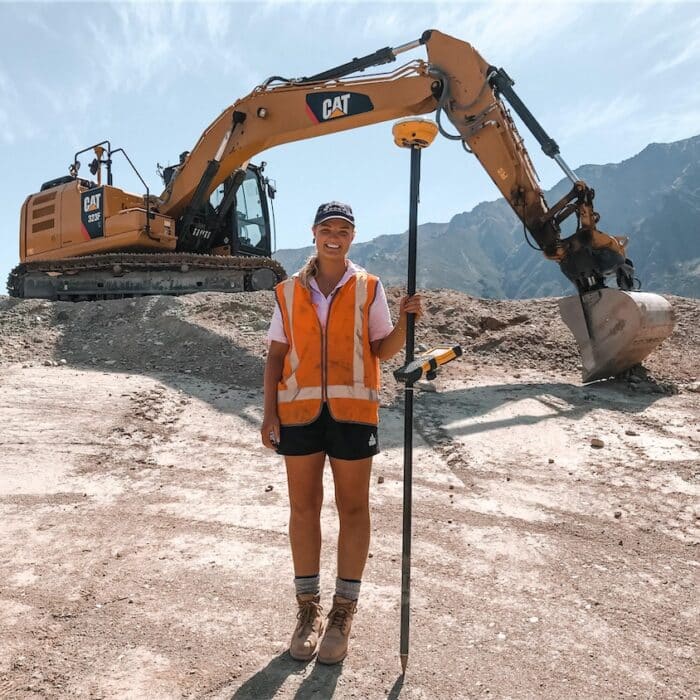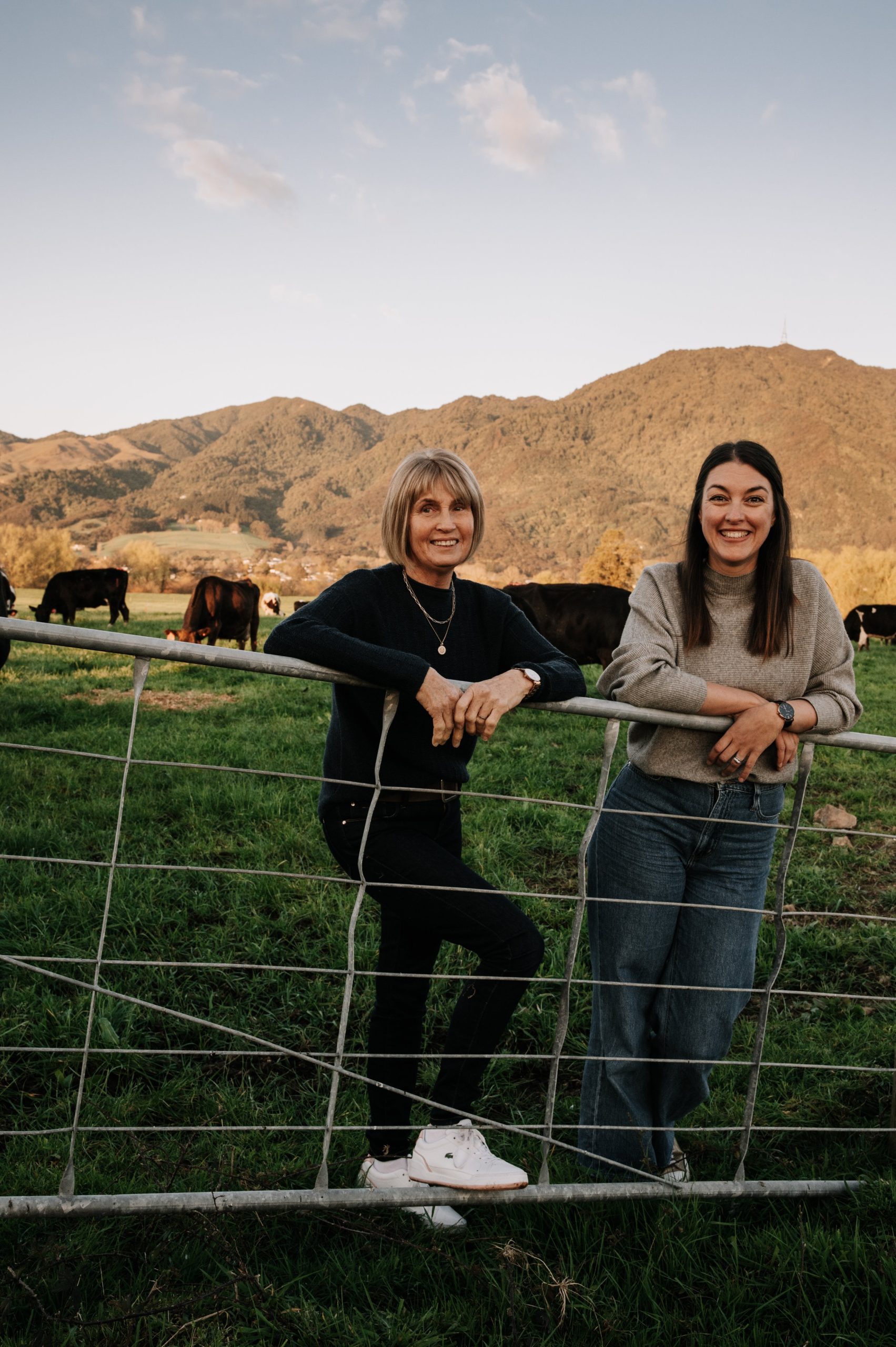
Jana: I've been in New Zealand for nearly eleven years now. My husband is born-and-bred Te Aroha, fourth generation on the family farm. We met overseas, then he was offered a job working on the family farm. I thought, "Oh yeah, I'll try New Zealand - it sounds pretty good!" He had always wanted to farm; he would have left school to farm if his parents had let him, but they encouraged him to get a trade first and travel.
We all live on the same farm, about 500 metres apart. As much as I love them, I don't know how well it would go actually living together! Chris has three siblings, and they have all been back at various stages and lived with their mum and dad, as we did at first - it's a very tight-knit family. They've all been overseas but now everyone is nearby: one sister lives just a kilometre down the road, another sister very close, and his brother in Tauranga.
Robyn and John own the farm, and Chris and I are shareholders. We contract milk here. Chris runs the farm and the milking, but his mum and dad are very much involved still. John is on the farm every day, and Robyn is still the chief calf-rearer. I'm the office person - I'm not down on the farm - and Robyn also does some of that, so we are office buddies in that sense. But we don't see each other every day.
Robyn and John have a wealth of knowledge; they've been farming for forty-plus years so they've tried different ways of doing things. They've learnt through experience, and know when things work or don't work. I have learnt everything I know about farming from them, and Chris of course. Robyn is a born and bred farmer, whereas I grew up in a big city [Cologne] and am from a corporate environment work-wise. She's eased me into farm life. Sometimes I won't know the background of why they do something the way they do, so it's great to have them there to explain.
We probably see each other once or twice a week. The kids love going there, or Robyn comes here, but we don't have set meals together or anything like that. Robyn is a Superwoman - she never says no to anything, so when it's not calving time, she'll have our kids, or the other grandchildren. We're both really into interior design and she has just renovated her house, so there's great common ground there. I have to say I really hit the jackpot in the mother-in-law department. My best friends in New Zealand are Chris's mum and his sisters. Sometimes people think it's a bit odd when I say I'm best friends with my mother-in-law, but they've just taken me in from day dot. It's a really supportive relationship.
We work and live close, but there's not a lot of conflict. When we talk about new projects on the farm and where it is going in the future, they want our involvement. We try to tread carefully and consider their point of view. When times are busy or stressful, especially during calving, I don't send the kids over there, and I won't ask for help - because they work really, really hard, and Robyn would never say no, even if she was really tired.
I find Kiwis very mindful of other people, avoiding conflict at all costs. Robyn is so diplomatic, so modest and so conscious of not hurting other peoples' feelings. Being German, I am probably a bit more abrupt. With farming, it can be tricky when it comes to things like who will take over the farm, so we try to keep communication strong, to be mindful and respectful of the whole family. And Robyn makes that easy.
I think if you work and live together, or live close, you've got to be very Kiwi! You've got to give each other space and be respectful, but it's also important to talk about things. Being open about things might mean there is conflict at times, but I'm a big believer in putting things out in the open, talking about things, then getting over it.
A big thing for us is just giving each other space. The kids would be there every day if they could, but I am conscious that Robyn may have already looked after her other grandchildren in any given week. It's not just us popping in all the time! I know there are a lot of people who don't have this kind of relationship with their mother-in-law, for one reason or the other, so I feel very lucky.
Robyn: I enjoy being around family, and helping where I can. I know how hard it is having little ones, and Jana would love to have her own parents closer. We get along great. It's no hardship at all to be part of Jana's life.
There are times when I won't see Jana for a week because we're both busy. Usually we'll be messaging still, as there are things on the farm that we need to be in touch about, but we certainly don't live in each other's pockets. But she knows I'm there if she ever needs a hand, a babysitter, or help with something else. It's just what we do.
I feel like we're friends, really. And actually I don't think of myself as a mother-in-law, more as a mother - and that's not to take away from her own mother. We just love her to bits; she's part of our family. We have another daughter-in-law from Brazil who is just the same - she's away from her family, and has just fitted in with the rest of us. We were a family of six, and now we've just got more. It's just lovely.
Honestly, there are no real challenges; we've never really had a cross word. I do work more at the coalface on the farm, while Jana is more savvy with IT and admin stuff. So we have our own strengths and roles and it's been a natural thing, not something that we've discussed as such.
I've been a farmer's wife for forty-something years, and I was brought up on a farm, so Jana might ask my advice on things. It blows my mind though how Jana has adapted to the New Zealand way of life, and not just that but also New Zealand farming life, because that's a whole other level.
My other children welcomed Jana with open arms. Her and my two daughters have a great relationship; they're really good friends. They're all got young kids, so they've all had their struggles at times, but they help each other. That's what family is all about.
I think it would be more difficult if we were sharing a house, as some in-laws do. But we have our independence from each other. I'm probably a bit old-school, whereas the younger generation have different ways of doing things - but I actually enjoy seeing new ways of doing things. And I'm sure I did things completely differently from my mother - it's natural progression. Mutual respect, not trying to put your ideas onto someone else - recognising that everyone has their own way of doing things, and that things change, are so important. Kindness, consideration and respect covers most of it.

This story is part of THREAD, a year-long project by Shepherdess made possible thanks to the Public Interest Journalism Fund through NZ On Air.
Related Stories
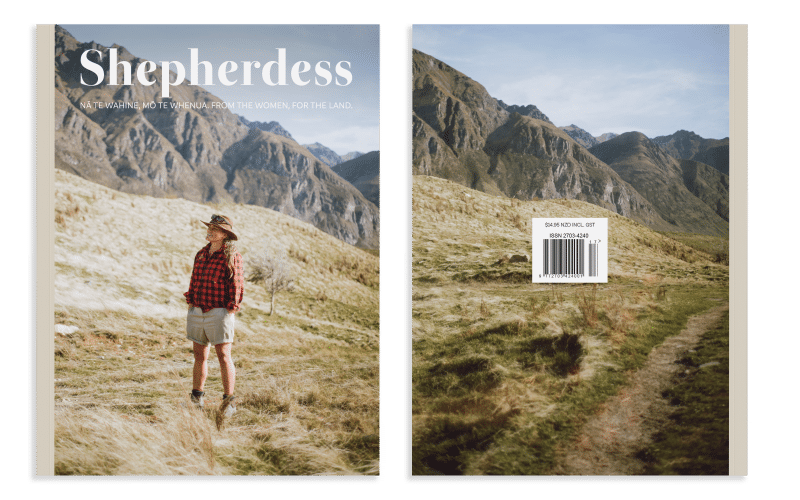
Out Now
Seventeenth Edition
Our beautiful Ngahuru Autumn 2024 Edition is out now!
